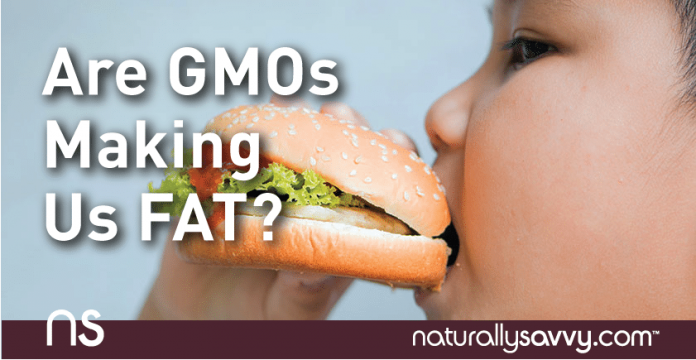
What do most processed foods have in common (besides the excess sugar, sodium, fats, and artificial ingredients)? They all also likely contain GMOs delivered in small doses in the form of multiple ingredients.
While many of us are now aware of the inherent human health and environmental risks associated with GMOs and the accompanying agrochemicals like glyphosate, most people don’t understand that glyphosate, best known as Monsanto's Roundup, is also an antibiotic as well as an endocrine disruptor. Studies have shown that early exposure to antibiotics can lead to weight gain and numerous other health issues. But what about a steady stream of antibiotics in our every day food? What does that do to our precious gut health?
Antibiotic use in food has been a hot-button issue recently as many livestock animals get a regular dose of antibiotics to help them put on weight, fast. More than 70 percent of our antibiotic stocks in the U.S. go directly to livestock. But increasing consumer pressure has forced manufacturers and major restaurant chains to commit to sourcing antibiotic-free animal products. Still, when we eat GMO in conventional foods, we too are getting exposed to antibiotics, and may be gaining weight as a result.
Monsanto, the manufacturer of the glyphosate-based weedkiller Roundup, patented glyphosate as an antibiotic in 2010. GMO seeds such as corn, soy, and canola are engineered to resist heavy applications of glyphosate, meaning these crops are routinely dosed with the herbicide which stays present in the food you eat.
Read more about the harmful effects of glyphosate.
Numerous GMO ingredients can be found in processed foods under cleverly constructed long, confusing names (I've often spotted ten or more hidden GMOs in processed food ingredient lists). A little sprinkle here and a little sprinkle there makes for a nice steady stream of antibiotics coursing through our veins and storing in our fat.
Antibiotics destroy our gut bacteria. They work exactly the same way in all animals. With little or no gut flora, the animals absorb more energy or calories from their feed. This is why it's used in the livestock industry to fatten them up quickly. Mice experience a similar fate when put on antibiotics. And you may be experiencing the same effect with your diet.
The first step in cleaning up the antibiotics in our bodies is to simply stop buying in to the perceived convenience of conventional processed foods, and start eating real food with clean ingredients. Eating organically produced foods is key in ridding our bodies of the constant flow of antibiotics we are confronted with daily. This means fewer meals out of the house, and more home-cooked, made-from-scratch meals with ingredients that don't come in long lists–better yet, ingredients that grow in your own yard or a nearby local farm.
The second step is to restore the "good" gut bacteria that sustains us.
Read more about how to maximize the effects of probiotics
Probiotic supplements may be the best way to rebuild gut bacteria. Probiotic foods like yogurt and sauerkraut are excellent choices, but they may not be strong enough to replenish the diminished flora in some people. This is a job for a high-dose probiotic. Properly balanced gut flora has been found to inhibit calorie absorption by positively affecting the hormone leptin, which regulates appetite. It seems that probiotics work particularly well in women in terms of weight loss.
Another good reason to restore our gut flora is to protect us from antibiotic resistance. Sadly, each year there are more and more cases of deaths due to antibiotics simply not working.
Probiotics are also important for optimizing brain function. There have been many studies done on the gut-brain connection, linking mental health to our digestive health. And, let's face it, a healthier brain will help you make healthier food decisions, too, right?










